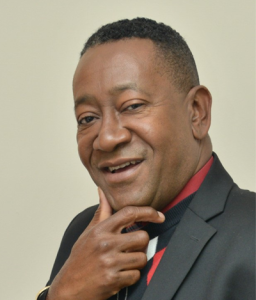
YOUR last will and testament is a long phrase for that document you use to dictate who gets what of your belongings (called your “estate”) when you die.
If you choose to have a will done, there are a few rules you need to follow for it to be valid. I’ve already discussed the most important of these requirements in a past article and will not bore you to repeat them here.
This article focuses on a strategy commonly used to deal with the need to have testamentary capacity or to be of sound mind and memory at the time that you sign on the dotted line in your will.
What does this mean and why is it so important?

Many lawsuits find their way to the courtrooms because of challenges to a will after the maker has died.
Usually, someone who expected to benefit under the will got cut out of the will, or got less than they expected, leading them to challenge the validity of the will to try to get it thrown out. A common ground of challenge is that the maker of the will did not have the mental fitness required of him or her at the time the will was signed.
The law, of course, has a minimum standard before you can be considered competent to make a will.
You must understand the extent of your belongings and what you will be disposing of in your will. You must understand what a will is and what is the effect of a will.
You must also understand who might have claims upon your estate that you ought to recognise.
Certain forms of mental illness acting upon you at the time of the making of your Will could make you of unsound mind and memory. However, as long as you know what you have and who you want to leave it too for reasons that are clear, rational and consistent you are considered capable.
Now that we got all that legal stuff out of the way, let’s turn to strategy I spoke of earlier.
Do you know the people in your life well enough that you can predict whether they might be unhappy with your will and may wish to challenge it on the basis that you did not know what you were doing?
Have you made several wills, constantly changing who benefits under your will?
Do you suffer from any form of illness which has the potential to affect your mind and memory?
These are some questions your lawyer may ask you when you ask for your will to be prepared. Why?
If the answer is yes/maybe to any of those questions or if you are a senior citizen, your lawyer may ask you to get a certificate of medical fitness from a medical doctor or a specialist of the mind.

Such a certificate should state the exact date you were examined (which should be as close as possible to the date you sign your will), be signed by the doctor who examined you, and state the medical qualifications of the doctor.
These certificates more or less declare that you were medically examined and based on their expert assessment, they found you of sound mind and memory and competent to dispose of your estate by will. This certificate will usually be appended to your will.
While there is no requirement in law to be medically examined for mental fitness before you do you will, its benefits are twofold: deterrence and evidence.
The mere fact that there is certificate of mental fitness from an appropriately qualified doctor attached to your last will and testament is usually an effective deterrent against legal challenges to your Will on the grounds of a lack of mental capacity.

If an unhappy person still decides to challenge your will after you die, there is available evidence of your state of mind which your executor (the person you appointed to manage your estate as per your will after you die) can use to defend the validity of the will.
No matter what your age, young or old, I encourage you to have a will done. Provided of course that you do not want the law of distribution on an intestacy (meaning dying without a will) to apply.
If you are requested to get a medical certificate of fitness, now you know why.
Be safe Trinidad and Tobago.
Copyright © 2020 Neela Ramsundar, LL.B (HONS), L.E.C is a Civil Litigation Attorney at Law & Certified Mediator.
Disclaimer: The contents of this article are for general informative purposes only. It does not provide legal advice and does not create an attorney-client relationship with any reader. For legal advice on your specific situation, please contact an Attorney-at-Law of your choosing directly. Liability for any loss or damage of any kind whatsoever allegedly incurred a consequence of using content in this article is thus hereby excluded to the fullest extent permitted by law.
![]()











